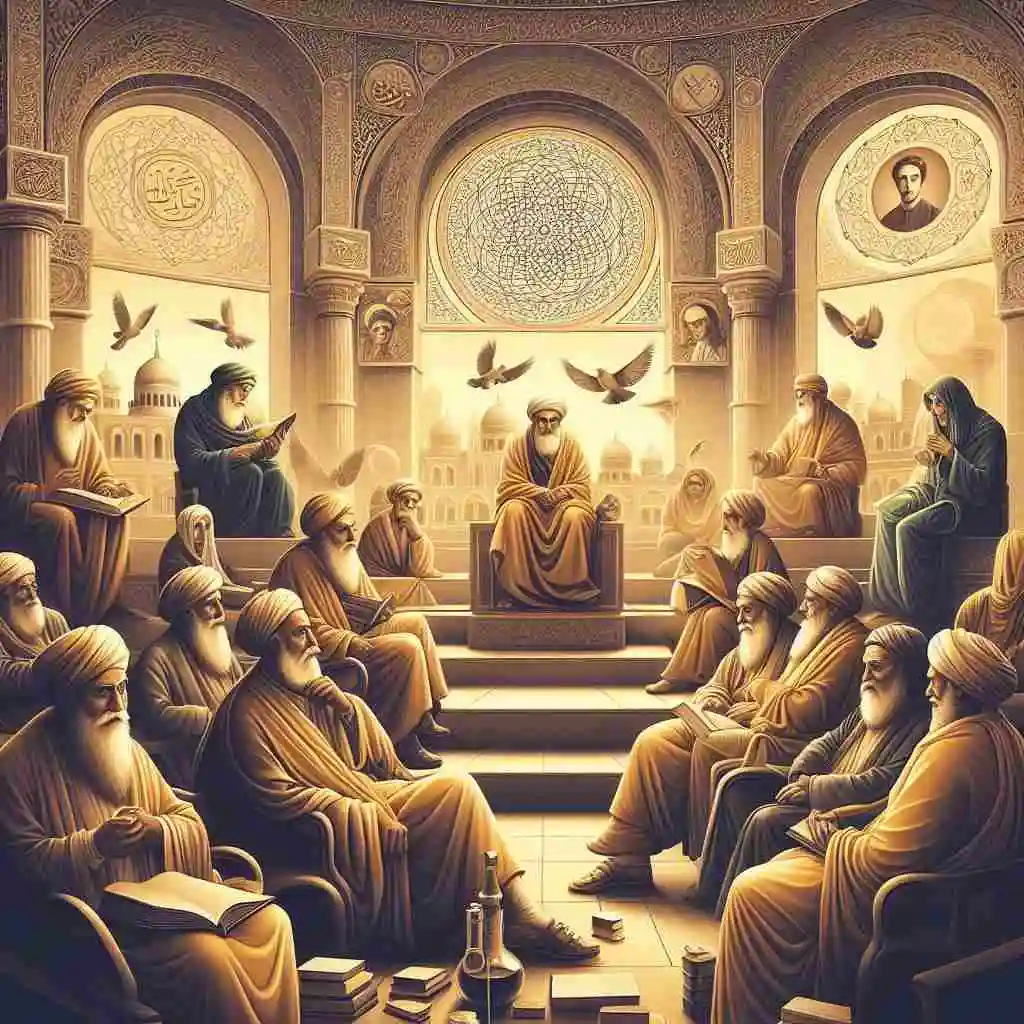The golden age of Islamic philosophy spanned several centuries, during which Arab philosophers made groundbreaking contributions to various fields, including metaphysics, logic, science, and political theory. This article will explore the remarkable legacies of some of the most famous Arab philosophers, whose ideas and teachings continue to shape our understanding of the world and human knowledge.
From the pioneering work of Al-Kindi, the “Philosopher of the Arabs,” to the profound insights of Ibn Sina, also known as Avicenna, the “Prince of Physicians,” these thinkers have left an indelible mark on the course of human thought. Their contributions have bridged the intellectual traditions of the East and the West, facilitating the exchange of ideas and the advancement of knowledge.
Join us as we delve into the captivating world of famous Arab philosophers, exploring their remarkable legacies and the enduring impact of their ideas on our modern understanding of philosophy, science, and the human condition.
Key Takeaways
- The golden age of Islamic philosophy spanned several centuries, during which Arab philosophers made groundbreaking contributions to various fields.
- This article will explore the remarkable legacies of some of the most famous Arab philosophers, including Al-Kindi, Al-Farabi, Ibn Sina (Avicenna), Ibn Rushd (Averroes), and others.
- These thinkers have left an indelible mark on the course of human thought, bridging the intellectual traditions of the East and the West.
- Their ideas and teachings continue to shape our understanding of the world and human knowledge, across disciplines such as metaphysics, logic, science, and political theory.
- The article will delve into the captivating world of famous Arab philosophers, uncovering their enduring impact on modern thought and the advancement of human knowledge.
Most Famous Arab Philosophers
The golden age of Islamic philosophy, also known as the Islamic Renaissance, spanned several centuries, from the 8th to the 13th century. During this period, Arab and Muslim scholars made significant advancements in various fields, including philosophy, science, mathematics, and medicine. This cultural and intellectual flowering was influenced by the translation of Greek works into Arabic, as well as the vibrant intellectual discourse within the Islamic world.
Al-Kindi: The Father of Arab Philosophy
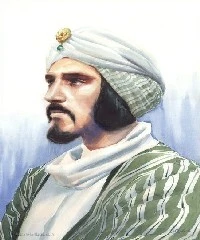
Al-Kindi, also known as the “Philosopher of the Arabs,” is considered the first major Arab philosopher. He made significant contributions to various fields, including metaphysics, logic, and the natural sciences.
Contributions to Metaphysics and Logic
As a pioneer in the field of metaphysics, Al-Kindi explored the nature of reality, the existence of God, and the relationship between the divine and the physical world. His work in logic laid the groundwork for later Arab philosophers, focusing on concepts such as causality, necessity, and possibility.
Pioneering Work in Optics and Music Theory
Al-Kindi also made significant advancements in the fields of optics and music theory. His work on the nature of light and the properties of vision laid the foundation for later developments in the study of optics. Furthermore, Al-Kindi’s innovative approach to music theory helped shape the understanding and appreciation of this art form within the Islamic world.
| Key Accomplishments | Description |
|---|---|
| Contributions to Metaphysics | Explored the nature of reality, the existence of God, and the relationship between the divine and the physical world. |
| Contributions to Logic | Focused on concepts such as causality, necessity, and possibility, laying the groundwork for later Arab philosophers. |
| Work in Optics | Pioneered the study of the nature of light and the properties of vision, influencing later developments in the field. |
| Work in Music Theory | Innovative approach to music theory that helped shape the understanding and appreciation of this art form within the Islamic world. |
Al-Farabi: The Second Teacher
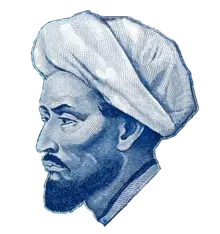
Al-Farabi, known as the “Second Teacher” (after Aristotle), was a highly influential Arab philosopher who lived in the 10th century. He was renowned for his ability to synthesize the ideas of Aristotle and Neoplatonism, creating a unique philosophical system that combined the two traditions.
Synthesis of Aristotelian and Neoplatonic Thought
Al-Farabi’s philosophical approach was characterized by his skillful integration of Aristotelian and Neoplatonic concepts. He recognized the inherent compatibility between the two frameworks and sought to reconcile their seemingly divergent ideas. By drawing from the depth of Aristotle’s logic and metaphysics, as well as the transcendent principles of Neoplatonism, Al-Farabi constructed a comprehensive philosophical system that illuminated the nature of existence, the human soul, and the divine.
Political Philosophy and the Virtuous City
In addition to his contributions to metaphysics and epistemology, Al-Farabi was also a prominent figure in the realm of political philosophy. His treatise on the “Virtuous City” outlined his vision for an ideal society, one that was governed by a wise and just ruler who would guide the citizens towards the highest levels of moral and intellectual excellence. Al-Farabi’s political thought emphasized the importance of education, the cultivation of virtue, and the harmonious integration of the individual and the community.
| Key Aspects of Al-Farabi’s Thought | Description |
|---|---|
| Synthesis of Aristotelian and Neoplatonic Thought | Al-Farabi skillfully integrated the ideas of Aristotle and Neoplatonism, creating a unique philosophical system that combined their respective strengths. |
| Political Philosophy and the Virtuous City | Al-Farabi’s vision for an ideal society emphasized the importance of education, the cultivation of virtue, and the harmonious integration of the individual and the community. |
| Influence on Subsequent Philosophers | Al-Farabi’s philosophical synthesis had a significant impact on later thinkers, including Ibn Sina (Avicenna) and Ibn Rushd (Averroes), who built upon his ideas and expanded the frontiers of Islamic thought. |
Ibn Sina (Avicenna): The Prince of Physicians
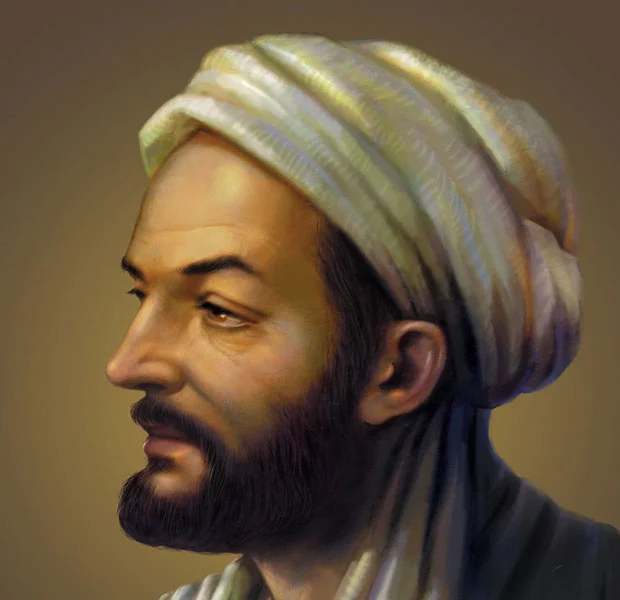
Ibn Sina, also known as Avicenna, was a prolific Arab philosopher, physician, and polymath who lived in the 11th century. He is widely regarded as one of the most influential figures in the history of Islamic thought and medicine, earning him the title “The Prince of Physicians.” Avicenna’s remarkable contributions to various fields, including metaphysics, logic, and the natural sciences, have had a lasting impact on the course of human knowledge.
Masterpiece: The Book of Healing
Avicenna’s magnum opus, The Book of Healing, is a comprehensive work that showcases his vast knowledge and intellectual prowess. This remarkable treatise, which covers a wide range of subjects, from logic and metaphysics to physics and mathematics, is considered a masterpiece of medieval scholarship. The Book of Healing demonstrates Avicenna’s ability to synthesize the ideas of ancient Greek philosophers, particularly Aristotle, with the teachings of Islamic theology.
Influence on Medieval European Scholasticism
Avicenna’s impact on the development of medieval European scholasticism cannot be overstated. His philosophical and scientific works were widely studied and influential in the West, particularly in the fields of medicine and natural philosophy. Avicenna’s ideas, as articulated in The Book of Healing and other writings, played a crucial role in shaping the intellectual discourse of the European Middle Ages, influencing the thought of scholars such as Thomas Aquinas and other prominent figures in the Scholastic tradition.
Ibn Rushd (Averroes): The Commentator
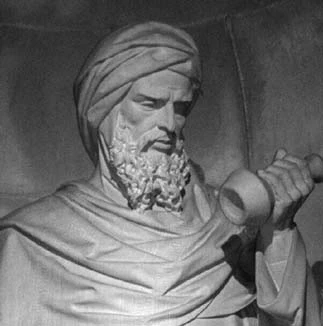
Ibn Rushd, also known as Averroes, was a renowned Arab philosopher and jurist who lived in the 12th century. He is best known for his comprehensive commentaries on the works of Aristotle, which aimed to reconcile the ancient Greek philosopher’s ideas with Islamic theology.
Reconciling Aristotle with Islamic Theology
Ibn Rushd, or Averroes, sought to bridge the gap between the philosophical teachings of Aristotle and the religious beliefs of Islam. He believed that reason and revelation were not mutually exclusive, but rather complementary. Through his detailed commentaries, he attempted to demonstrate how the philosophical concepts of Aristotle could be harmonized with the core tenets of Islamic theology.
Impact on Western Scholastic Philosophy
The work of Ibn Rushd, or Averroes, had a significant impact on the development of Western scholastic philosophy. His comprehensive commentaries on Aristotle’s writings were widely studied and debated by European scholars during the Middle Ages, leading to a renewed interest in the ancient Greek philosopher’s ideas. Averroes’ philosophical synthesis was instrumental in shaping the discourse within medieval European universities, as scholars grappled with the reconciliation of faith and reason.
In addition to the influential figures mentioned earlier, several other famous Arab philosophers made significant contributions to various fields of knowledge. Among them are Al-Ghazali, Ibn Khaldun, and Ibn Arabi, each renowned for their unique and lasting impact on Islamic thought and philosophy.
Al-Ghazali: The Reviver of Islamic Faith
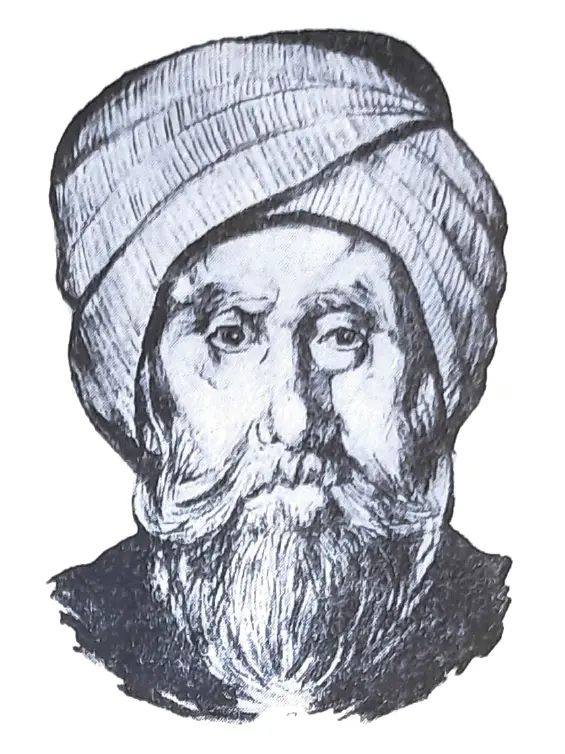
Al-Ghazali, often referred to as “The Reviver of Islamic Faith,” was a prominent Arab philosopher and theologian who lived in the 11th century. He is celebrated for his influential work in reconciling the apparent conflicts between reason and revelation, demonstrating how Islamic faith and philosophy can coexist harmoniously. Al-Ghazali’s masterpiece, “The Incoherence of the Philosophers,” challenged the philosophical positions of prominent Arab thinkers, setting the stage for a profound reconsideration of the relationship between faith and reason.
Ibn Khaldun: The Father of Social Sciences
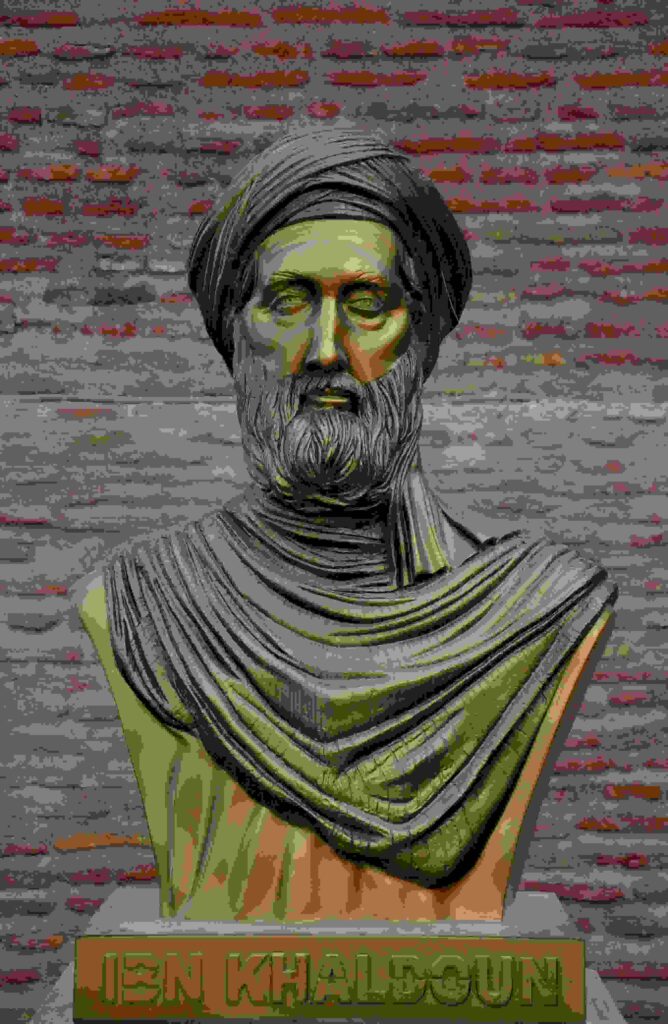
Ibn Khaldun, an Arab historian, sociologist, and philosopher, is widely regarded as the “Father of Social Sciences.” His magnum opus, “The Muqaddimah,” laid the foundations for the study of sociology, economics, and political science. Ibn Khaldun’s innovative approach to understanding the dynamics of human society and the cyclical nature of civilizations has had a lasting impact on the development of the social sciences.
Ibn Arabi: The Greatest Sufi Metaphysician
Ibn Arabi, known as the “Greatest Sufi Metaphysician,” was a prolific Arab philosopher and mystic who lived in the 12th and 13th centuries. His extensive writings on the nature of God, the human experience, and the cosmos have had a profound influence on Sufism, a mystical branch of Islam. Ibn Arabi’s philosophical treatises, such as “The Meccan Revelations” and “The Bezels of Wisdom,” explored the depths of spiritual and metaphysical thought, establishing him as one of the most influential Arab philosophers in the Sufi tradition.
Al-Razi: The Polymath and Skeptic
Al-Razi, also known as Rhazes, was a renowned Arab polymath who made significant contributions to various fields, including medicine, alchemy, and philosophy. He was known for his skepticism and his willingness to challenge established ideas and beliefs.
Contributions to Medicine and Alchemy
As a prominent physician, Al-Razi made groundbreaking advancements in the field of medicine. He authored numerous influential works, including the comprehensive medical encyclopedia “Kitab al-Hawi” (The Comprehensive Book), which covered a wide range of medical topics and was highly respected in the medieval world. Additionally, Al-Razi made significant contributions to the field of alchemy, exploring the nature of matter and the transformation of substances.
Critique of Revealed Religions and Rationalism
Beyond his scientific achievements, Al-Razi was also known for his critique of revealed religions and his skepticism towards rationalism. He questioned the validity of religious dogma and challenged the notion of divine revelation, arguing for a more empirical and skeptical approach to understanding the world. Al-Razi’s philosophical views, which often clashed with the dominant religious and intellectual establishments of his time, earned him a reputation as a bold and unconventional thinker.
The Legacy of Arab Philosophy
The remarkable contributions of Arab philosophers during the golden age of legacy of arab philosophy have had a lasting impact on the development of human knowledge and thought. Their ideas and teachings have served as a crucial bridge between the intellectual traditions of the East and the West, bridging east and west, facilitating the exchange of ideas and the advancement of knowledge.
Bridging East and West
Arab philosophers played a pivotal role in transmitting the knowledge and wisdom of ancient Greek thinkers to the Western world. By translating and interpreting the works of Aristotle, Plato, and other Greek philosophers, they helped to preserve and disseminate these foundational ideas, which went on to shape the course of Western philosophy and science.
Influence on Modern Thought and Science
The legacies of Arab philosophers continue to resonate in the modern world, influencing influence on modern thought and scientific thought. Their groundbreaking contributions to fields such as metaphysics, logic, and the natural sciences have had a profound impact on the way we understand the world and approach the pursuit of knowledge. influence on modern science
| Arab Philosopher | Key Contributions |
|---|---|
| Al-Kindi | Pioneering work in optics and music theory, contributions to metaphysics and logic |
| Al-Farabi | Synthesis of Aristotelian and Neoplatonic thought, influential political philosophy |
| Ibn Sina (Avicenna) | The “Prince of Physicians,” influential work in medicine and philosophy |
| Ibn Rushd (Averroes) | Comprehensive commentaries on Aristotle, reconciling Greek philosophy with Islamic theology |
The conclusion is clear: the contributions of these Arab philosophers have served as a crucial bridge between the intellectual traditions of the East and the West, facilitating the exchange of ideas and the advancement of human knowledge. Their ideas continue to shape our understanding of the world and continue to have a profound influence on modern thought and science.
As we reflect on the legacy of these remarkable thinkers, we are reminded of the power of intellectual discourse, the importance of cross-cultural exchange, and the enduring impact of the human mind. The golden age of Islamic philosophy stands as a testament to the transformative power of knowledge and the enduring spirit of human curiosity.

